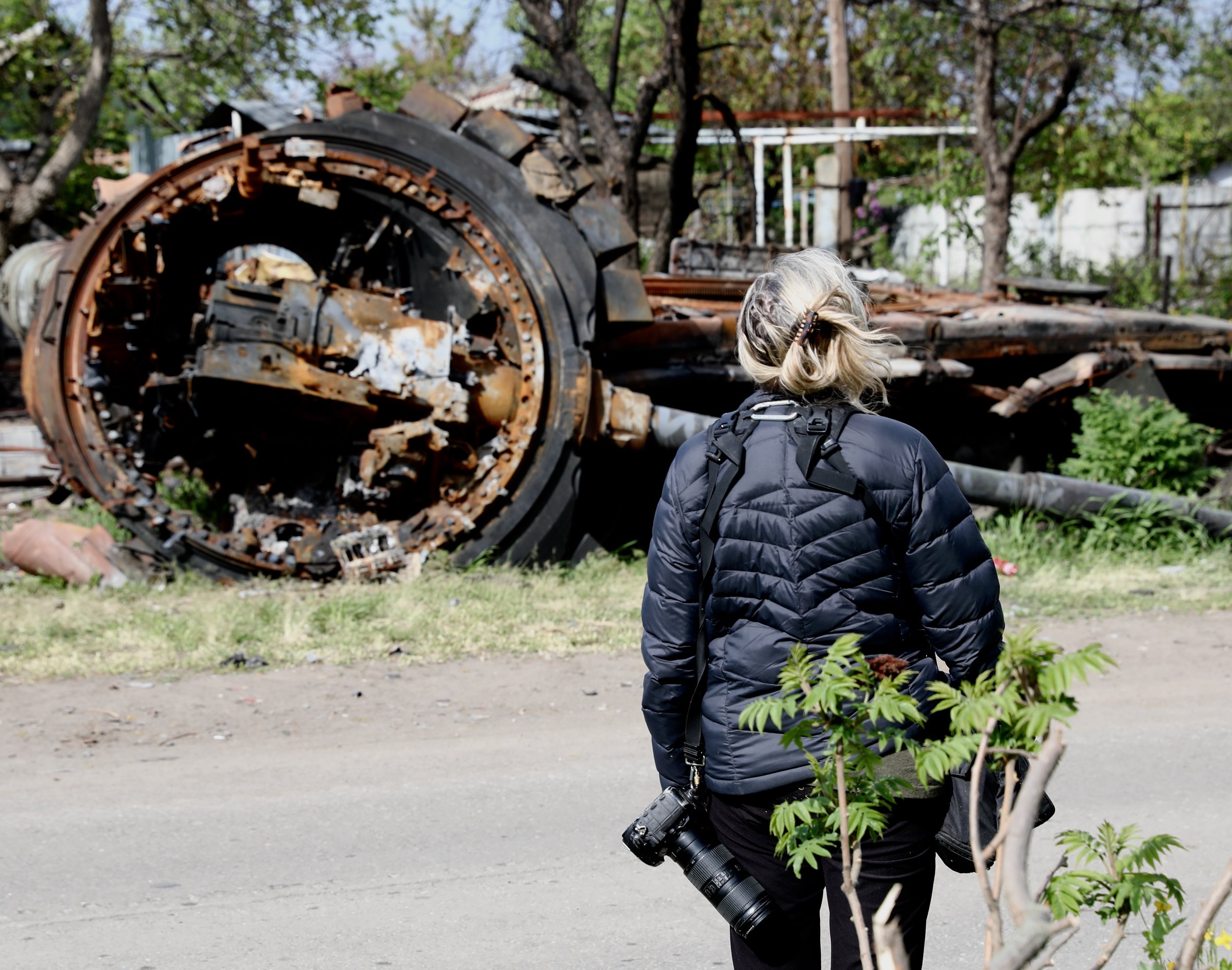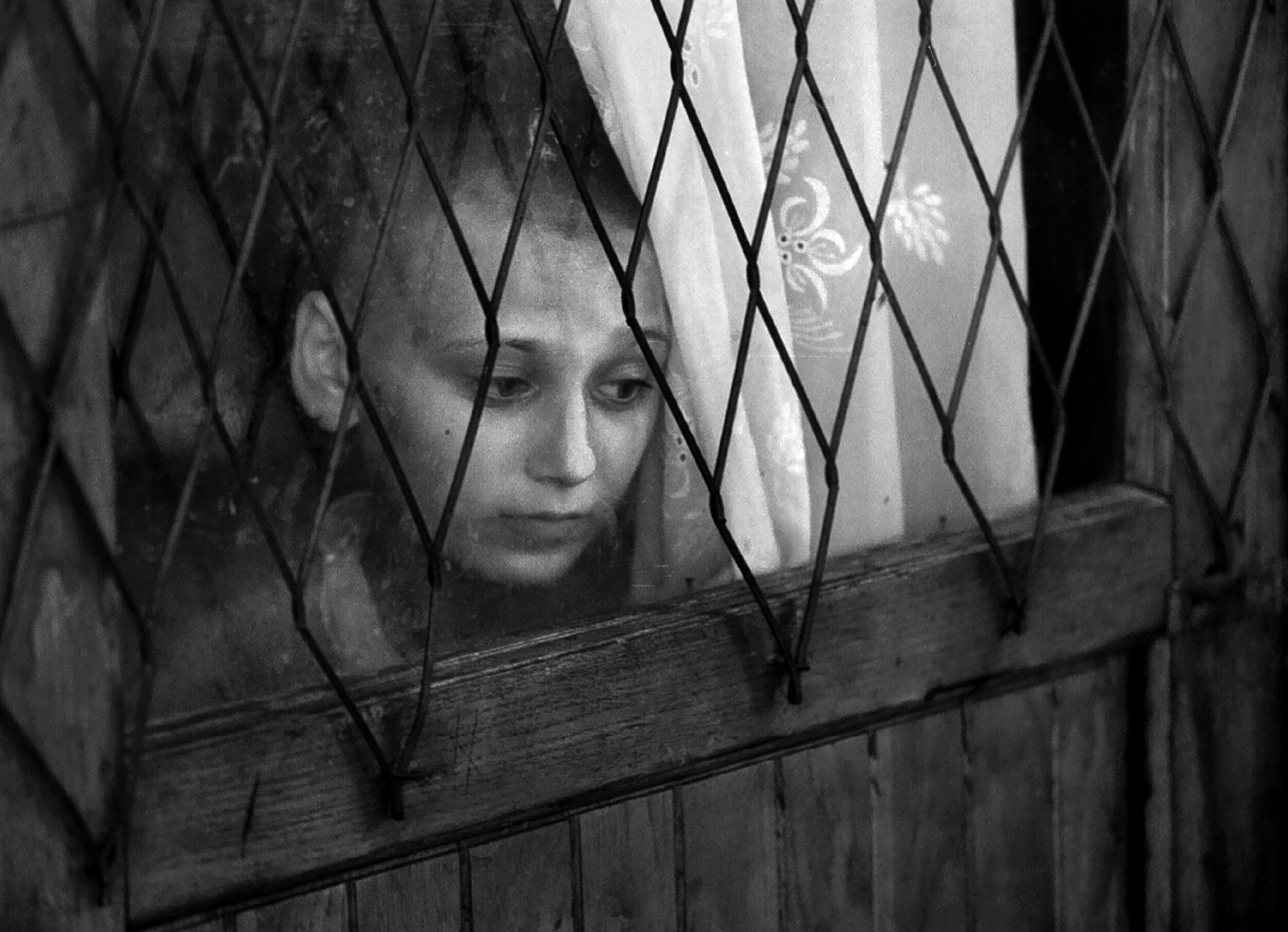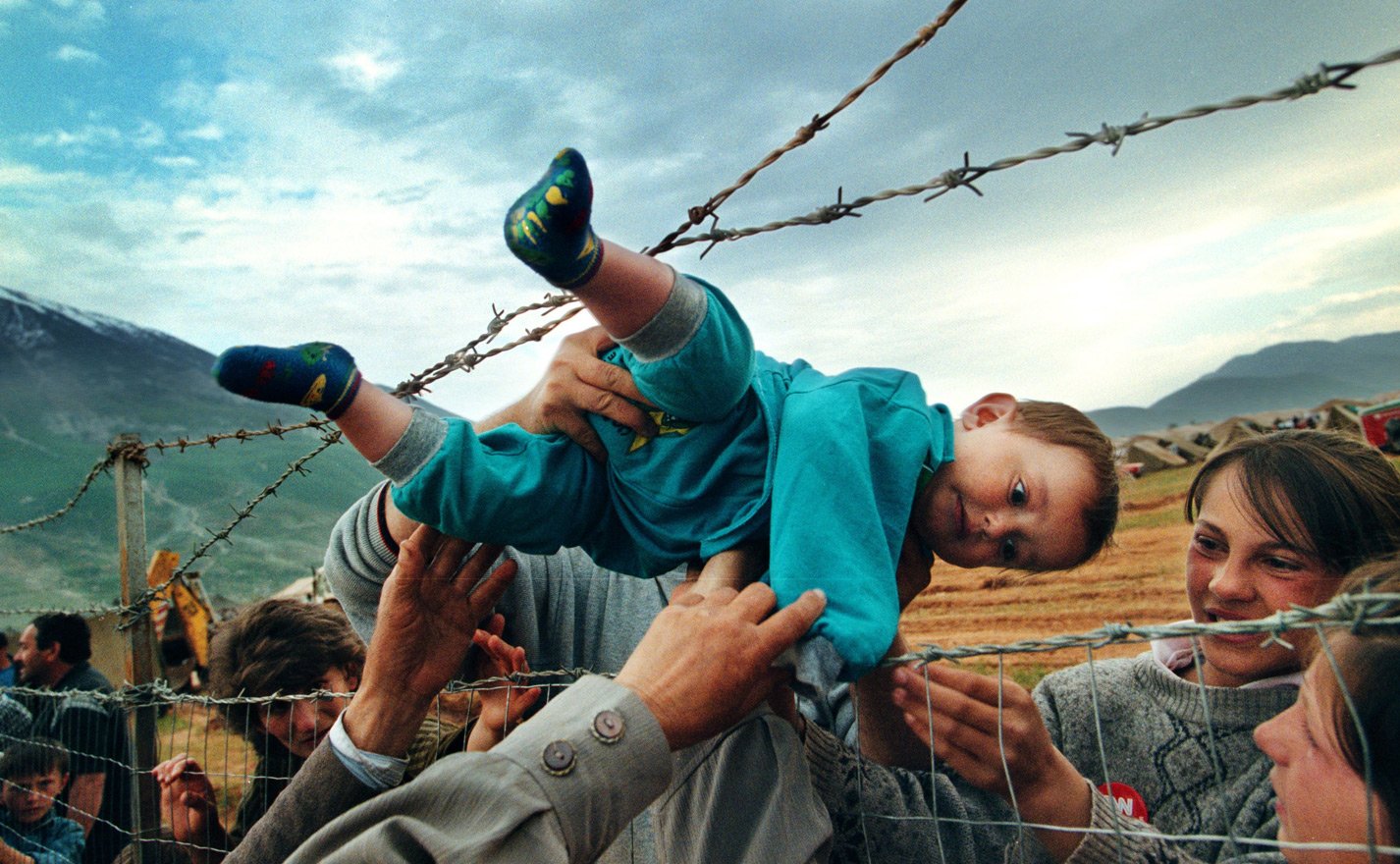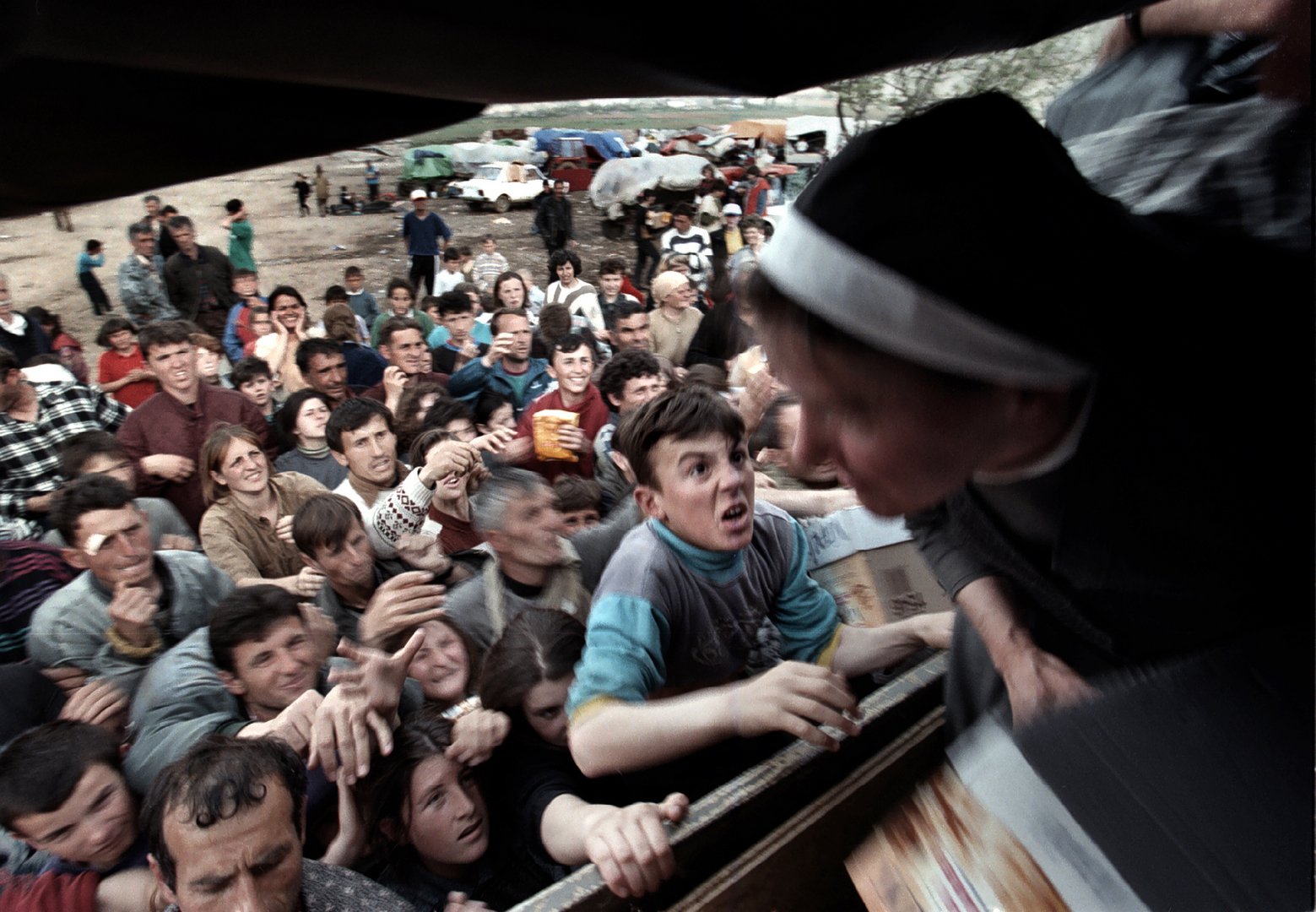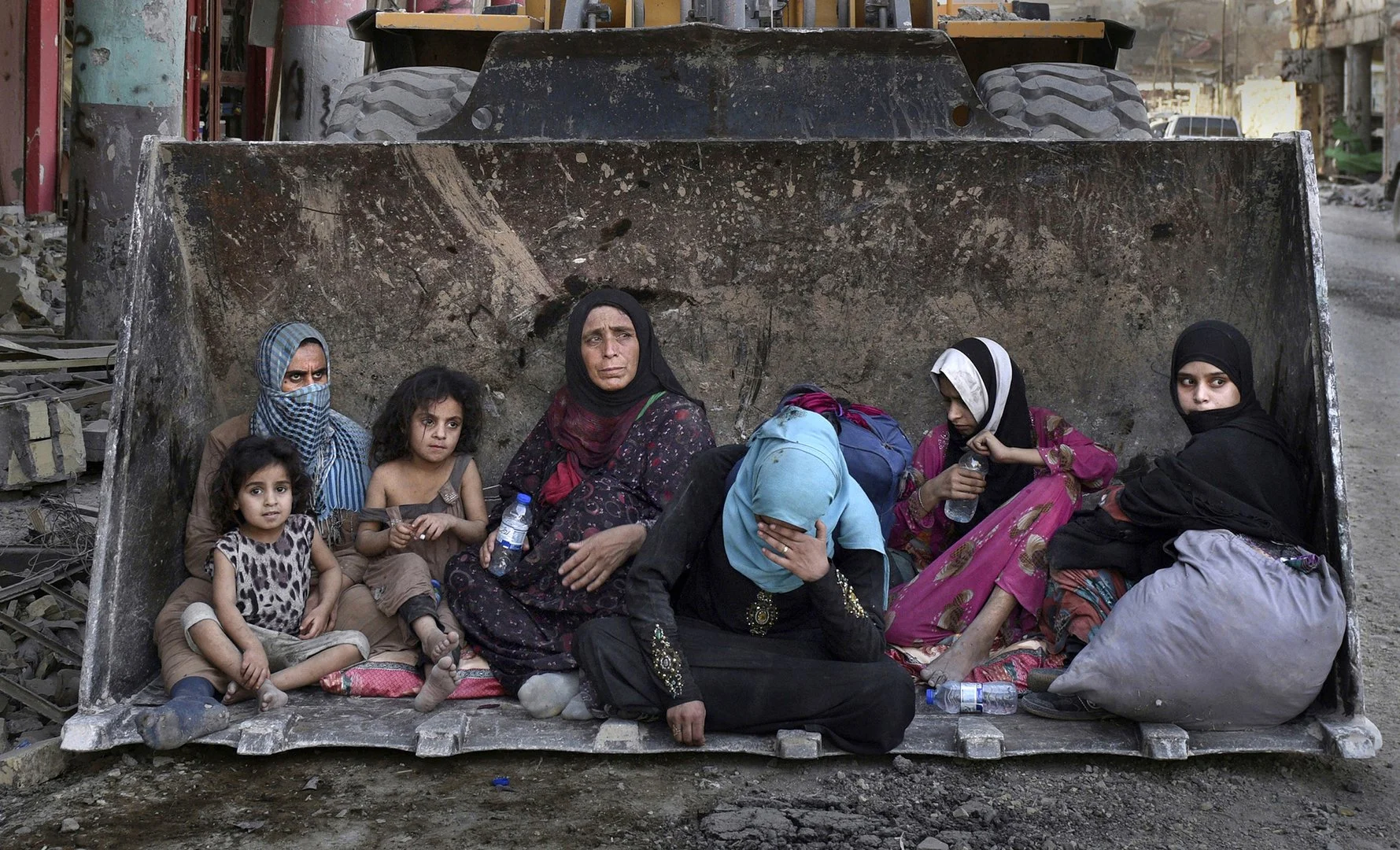CHASING FIRE
Don’t Look Away
Chasing Fire is a rare look into the lives of war reporters and the painful price they pay to share truth with the world.
CHASING FIRE
4 Minute Rough Cut Sample
SUMMARY
Chasing Fire is a captivating short documentary that delves into the world of war journalists, following their relentless pursuit of truth amidst the chaos of conflict zones. Four time Pulitzer prize winning photo journalists Carol Guzy treks across the edges of the battlefield to capture the stories before they are lost. Along with three other journalists, they risk their lives and their mental health to document the war and share what they witness with the world.
Through the lens of filmmaker Justin D. Roberts, this thought-provoking film explores the dangers and emotional challenges faced by these brave individuals as they navigate treacherous landscapes. Interweaving their personal stories with symbolic imagery of wreckage and hope, Chasing Fire offers a poetic exploration of the journalists’ unwavering determination and the profound impact of their work.
THE JOURNALISTS
Carol Guzy is the only journalist in history to win four Pulitzer Prizes, yet it's not her accolades that define her – it's her relentless pursuit of hope in humanity's darkest moments. From a nurse who discovered her calling in a darkroom to the most decorated photojournalist of our time, Guzy has fundamentally transformed how we witness human resilience through crisis.
For four decades, her lens has captured watershed moments that have shaped our world: the fall of the Berlin Wall, the Kosovo refugee crisis, the aftermath of 9/11, and the devastating earthquakes in Haiti. But where others chase the spectacle of war and disaster, Guzy seeks out the quiet dignity of those surviving in its shadows. Her photographs don't just document tragedy – they reveal the unbreakable spirit of those enduring it.
CAROL GUZY
The most decorated photojournalist in history
Since the fall
of the Berlin wall
she’s been behind the lens
capturing humanities
most defining moments.
This is her story…
Nuria Garrido
A younger Spanish journalist
covering her first war
Roger Persiva
A 52-year-old journalist who returned
to war journalism after a breakdown and
having left journalism for ten years
Ken Cedeno
A veteran photographer who worked with Carol Guzy for 25 years decided to follow her to the war zone for his first time
ON
THE
FRONT
IN
UKRAINE
DIRECTOR’S STATMENT
I came to understand war journalism through unlikely friendships. As a soldier in Afghanistan, During an operation I met Mike Boettcher, an ABC News war correspondent. We weathered several battles together, and footage I captured during our time made it onto an Emmy award winning piece for ABC News. We then collaborated on his documentary The Hornet's Nest.
At COP Monti in Afghanistan, James Foley and I were roommates. We went on missions together, talked about doing a TV show, two storytellers bonding in a war zone. Years later, ISIS would execute him, using my photo of him in their propaganda video. When I saw that image it shattered me. I kept wondering, "Why did he keep going back into the fire?"
Years later, in Ukraine, I found myself watching journalists near the front lines. The question that had lingered since James's death pressed on my mind.
As a soldier, I understood why we go – it’s our duty. But journalists? They walk into danger unarmed, protected only by their cameras. They can walk away at any time. Yet they don’t.
I wanted to understand why, so I followed them.
Mike Boettcher, America’s longest working war correspondent. I took this photo during Operation Strong Eagle 3
James Foley, during a patrol in Kunar Provence, Afghanistan. I took this photo of him when we went out to Point 1311, which was a guaranteed fire fight.
THE STORY
At the Park Hotel in Ukraine, filmmaker Justin Roberts sits with journalists, observing their quiet preparations for another day near the front lines. A question from his past lingers in his mind. During his time as a soldier in Afghanistan, Roberts had roomed with James Foley at COP Monti. The two often talked about creating a TV show together. But when ISIS later executed Foley, they used a photo Roberts had taken of him in their propaganda video. That devastating loss left Roberts wrestling with a haunting question: Why do journalists keep going back into the fire?
Among the journalists at the Park Hotel is Carol Guzy, a four-time Pulitzer Prize winner and one of the most celebrated photojournalists in history. Despite her remarkable achievements, Carol remains intensely introverted. Her camera serves as a bridge to humanity’s most profound moments. From the fall of the Berlin Wall to Haiti’s earthquakes, from Kosovo’s refugee crisis to the aftermath of 9/11, her work reflects a deep commitment to capturing stories that matter.
As Roberts follows Carol and other journalists to the front lines, he begins to uncover the diverse motivations that compel them. Young Spanish journalist Nuria Garrido covers her first war with an unwavering belief that silence in the face of atrocity equals complicity. Roger Persiva, returning to conflict journalism after a decade away, seeks closure for a journey that began in Bosnia. Ken Cedeno, a veteran photographer who has worked alongside Carol for 25 years, reflects on her rare ability to find moments of grace in destruction.
The Park Hotel itself would not escape the destruction of war. Two Russian missiles later reduced it to rubble, scattering its occupants and their stories. But through interviews and scenes from the front lines, the resilience of these journalists remains unbroken. Each story reveals the personal cost of bearing witness to war. For Carol, this means continuing her work despite depression and the scars of past trauma. Her lens often turns to the “babushkas” – elderly women whose quiet strength and perseverance offer glimpses of hope amidst the devastation.
Chasing Fire shows that war correspondence is not about seeking death or destruction. It’s about illuminating the resilience of the human spirit in its darkest hours. Through Carol’s enduring search for hope after decades of trauma, Roberts finds an answer to his question. These journalists return to the fire not for glory, but because they believe in the power of bearing witness – a power that reveals both humanity’s capacity for cruelty and its unyielding resilience.
IMPACT
Through one war photographer's search for light in darkness, we rediscover both how to hold onto hope and the humanity of journalists.
For over 40 years, Carol Guzy has stood at the frontlines of human suffering. As a soldier, I watched strong men break after a single year of combat. Yet Carol returns to danger and devastation year after year, documenting the darkest moments of humanity.
How has she survived? More importantly, how has she found light in such darkness?
Her answer could be medicine for a hurting world. That's why we made this film.
Beyond the Lens
We made this film to show the human beings behind the headlines. These aren't just war correspondents – they're sons and daughters, friends and neighbors.
They struggle with depression, fight personal battles, and question their own purpose. They're not merely observers but people who carry the weight of every story they tell.
In an age where journalism faces unprecedented distrust, we discovered something unexpected: seeing the human beneath the headline might be our path back to truth. When we understand why someone would risk everything to document a story, we begin to understand why that story matters.
- Short Documentary (40mins)
- Stage: Postproduction
- Topic: War Journalism
- Timeline: 3 months to complete
STATUS
DIRECTOR
JUSTIN D. ROBERTS
Award-winning
Director & former
Army Captain
Justin D. Roberts is an independent film director and producer, renowned for his immersive documentary filmmaking in active war zones and disaster areas. He is currently directing a documentary called Live Free, capturing the war in Ukraine, where he has spent a year in Ukraine and in the trenches of Donbas, Mykolaiv, and the gray zone in Kharkiv. Justin is in pre-production on a syndicated series called Do Good, which raises support for humanitarian nonprofits, and has two documentary features, Drive On in postproduction and Fighting Spirit which is Executive Produced by Chris Pratt and released to theaters this last Veterans Day. His previous theatrical release, the international award-winning military-documentary No Greater Love, was lauded as "One of the best, most powerful documentaries ever made" by Movie Guide. For his service during his tour in Afghanistan, he was awarded the Bronze Star and the Army Commendation Medal for Valor.
His work has earned him eleven international awards, with screenings before the White House, Congress, the Vatican, and recognition such as the Santini Patriot Spirit Award and Best Military Filmmaker from the G.I. Film Festival. Justin graduated from Dallas Theological Seminary and holds Masters degrees in Media Arts and Communication and in Biblical Studies.
“You cannot solve world problems until you shift cultures. And you can’t shift cultures until a story is told. That’s why we tell stories.”
Justin D. Roberts
NO GREATER LOVE
“No Greater Love is indeed a labor of love.”
– Variety Magazine
“One of the most powerful, best documentaries ever made.”
– MovieGuide
“... one of the best documentaries of the year...”
– Kam Williams
“No Greater Love cuts to the heart of why our warriors serve and needs to be seen by every American.”
– General Stanley McChrystal
FIGHTING SPIRIT
“Beautifully directed”
– Chris Pratt
"A powerful, well-made documentary honoring the unsung heroes of war, U.S. Army Chaplains."
– Movieguide
"A moving boost for the cause of Chaplain Kapaun, and a triumphant ode to military chaplains."
– National Catholic Register
"A powerful tale that unearths the soul-stirring narratives of U.S. Army chaplains, whose battlefield is the human spirit."
– Overly Honest Reviews
Contact us.
jdroberts1979@gmail.com
(337)563-5800
